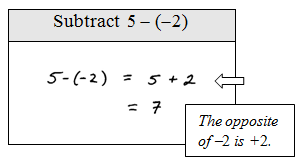
TYPICAL PACING
A 7th grade teacher usually begins the year teaching ‘how to add integers’ (positive and negative numbers). Then the students test, and everyone moves on to the next skill: ‘subtracting integers’ – regardless of whether or not they were successful with the first skill.
To be successful at ‘subtracting integers’ the student must rearrange the subtraction problem into an addition problem (adding the inverse). But if the student never learned how to add integers, it is unreasonable to assume that she can subtract integers, because the prerequisite skill was never mastered.

A WHOLE CLASS DIFFERENTIATED
I create learning stations for all the skills in my class.
A station consists of work that the student can do independently to help them master the skill. Some work is instructional, like reading the examples in the textbook and taking notes, or watching online tutorial videos if I can get my hands on some laptops and headphones. Most of the work is practice problems, like assignments via Khan Academy, aaamath, IXL, or some other website that offers immediate feedback. Other assignments are worksheets or textbook work, with the answers provided so that the student can check their progress.
The station lasts for a short period of time. I usually do three days, however this number is flexible – as is the mandate that the station must be independent; I often partner students with stronger ones who are very far ahead, or students who can translate, etc.
At the end of the time period for the station (3 days) I assess the students with a barebones test that only assess that standard. So if the station was on subtracting integers, that’s all that’s on the assessment (no curve balls, mixed review, etc.) The student must demonstrate proficiency to be promoted to the next station (I mandate a score of 80% or better to progress).
I also make promotion a big deal. The day after the test is called “promotion day,” and we play music and dance and move our names up the board of charted skills. Even the high school students love it!
Furthermore, I do not penalize them for failure. They simply do the station again (with different videos or worksheets), and another chance to pass the station in 3 days, and that test score will replace the first unsuccessful score.
————————————————————————————————————-
Here’s a link to the headphones I purchased for my class.

So you have a schedule of how you manage these stations? If so I would live a copy.